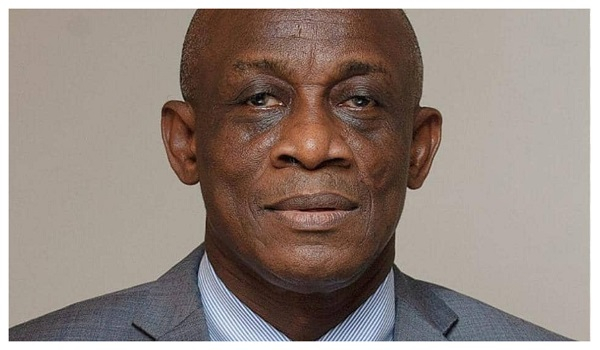How wealth managers on Long Island calm nervous clients - Newsday
Joseph Wekselblatt, 73, is a certified public accountant who has worked on Wall Street for much of his career. But even he relies on the help of a financial adviser.
The Floral Park resident regularly calls Great Neck-based adviser Jason Gilbertof RGA Investment Advisors LLC for his take on how current events might impact his portfolios. Between trying to balance work and family, trusting a professional to oversee his personal finances has been a relief, Wekselblatt said.
"I'd rather be invested with a thoughtful, intelligent investment adviser and I'll happily pay their fees to be able to sleep at night," he said.
With market swings and tariff threats dominating the news cycle in recent months, wealth managers and financial advisersacross Long Island have been at the forefront calming the fears of nervous clients — who have generally continued to stick by their portfolios, advisers said.
A wealth manager is a type of financial adviser who manages money for clients and acts "as a financial psychologist at times," said Mark Snyder, managing partner and founder of Medford-based Snyder Wealth Group. Financial advisers, who typically provide clients with advice on a range on financial issues, also help clients with planning for retirement, estates and taxes.
Financial advisers are paid in a variety of ways, Newsday has reported. Some earn commissions based on investment products they sell their clients, while others are fee-only. Some charge a flat fee, others charge a percentage of the assets they manage for their client, and some are paid through both fees and commissions.
Financial advisers interviewed by Newsday in recent weeks said they continue to field calls from skittish customers concerned about their portfolios, especially after news of potential tariffs. Stock market swings following Trump directives in recent months have even prompted some investors to seek psychological help to cope with their anxiety, Newsday has reported.
But despite their concerns, clients have mostly been holding steady, said Mark Badami, financial services representative at The Legacy Group, New York, which has branches in Hauppauge and Syosset.
“The clients that I am speaking to are concerned, but not doing anything rash. They’re not demanding to get out of the market,” he said.
Other advisers said their clients are similarly concerned, but holding steady. Several said the latest market downturns are not as bad as during the COVID-19 pandemic in 2020, or the 2008 financial crisis.
Those who have been most concerned are Long Islanders in or nearing retirement, said Charles Massimo, senior vice president and financial adviser at Wealth Enhancement on Long Island.
“I never get overanxious about the directions of the market because clients look for perspective from us, not predictions," he said. "But I do get concerned about how clients are thinking about this, so are we communicating the right things to our clients?”
He said his firm has been "dialing things up" to calm fears and remind clients that markets are "resilient."
In early spring, Snyder started sending twice-weekly emails to clients to remind them that time in the market, not timing the market, is what makes money.
“That’s helped immensely, clients just being more comfortable knowing that we’re here for them and we’re taking care of them,” Snyder said.
Part of a financial adviser’s role is to assess a client’s risk tolerance, Badami said. “One of the problems is that people that don’t have advisers to call and are investing on their own are making mistakes that are irrevocable.”
Even before news of tariffs, demand for wealth management services in the United States was on the rise, according to a February report from McKinsey and Company that estimates the industry will face a shortage of roughly 100,000 advisers by 2034.
The surge in demand has been fueled by Americans becoming both wealthier and developing more complex financial needs, such as relying on personal savings for retirement, the report said.
The latest sentiment survey from the American Association of Individual Investors for the week ending June 4 found nearly half of respondents, or 41.4%, believe the stock market will fall over the next few months. Remaining respondents were nearly equally split between those who felt neutral about the market or believed it would grow.
According to monthly sentiment surveys conducted by industry vertical Financial Planning, financial advisers' confidence levels were high post-election before plummeting to new lows in April. Sentiment has since rebounded, but remains generally negative, according to the report.
"I think that they're definitely having to do more hand-holding, a lot more interaction with clients than maybe they would be used to under calmer circumstances," said Robert Burgess, who analyzes the monthly reports at Financial Planning.
Advisers with long-term clients know to sit still, said Ed Slott, a Rockville Centre-based financial and retirement adviser whose firm trains wealth managers. "But then there are other clients who invest and they're not really long-term with the ups and downs [in the market], and they tend to panic."
Some clients switch advisers during periods of economic uncertainty, he said. "They're going to move to another adviser and that adviser probably lost clients too, for the same reasons," he said.
The largest independent regulatory body for brokers is the Financial Industry Regulatory Authority, which has been authorized by Congress to protect investors' interests, according to Investopedia. The group maintains a database called BrokerCheck that includes qualifications and enforcement actions taken against individual brokers, investment advisers and financial advisers.
People are more likely to seek professional financial advice during “times of uncertainty and complexity,” said Heather Eckles, managing director and market executive for Merrill Wealth Management on Long Island.
Guidance from professionals helps clients “stay the course,” she said. “Generally, the best days in the market have often followed the worst.”
Financial advisers can help “take the emotions out of investing, which is an important part of maintaining a long-term view of your financial plan,” Eckles said.
The uncertainty surrounding tariffs has been a “black cloud” over the economy, said Philip Palumbo, CEO and founder of Palumbo Wealth Management in Great Neck.
In an April interview, he said his firm had processed more referrals over the past few weeks, many people who were previously managing money on their own.
Clients' personal politics seem to impact their feelings about the market, he said.
Regardless of politics, “volatility doesn’t mean loss of capital,” he said. “Values go down, but it’s always short-lived because I believe we do have the greatest economic power in the world.”
Joseph Wekselblatt, 73, is a certified public accountant who has worked on Wall Street for much of his career. But even he relies on the help of a financial adviser.
The Floral Park resident regularly calls Great Neck-based adviser Jason Gilbertof RGA Investment Advisors LLC for his take on how current events might impact his portfolios. Between trying to balance work and family, trusting a professional to oversee his personal finances has been a relief, Wekselblatt said.
"I'd rather be invested with a thoughtful, intelligent investment adviser and I'll happily pay their fees to be able to sleep at night," he said.
With market swings and tariff threats dominating the news cycle in recent months, wealth managers and financial advisersacross Long Island have been at the forefront calming the fears of nervous clients — who have generally continued to stick by their portfolios, advisers said.
A wealth manager is a type of financial adviser who manages money for clients and acts "as a financial psychologist at times," said Mark Snyder, managing partner and founder of Medford-based Snyder Wealth Group. Financial advisers, who typically provide clients with advice on a range on financial issues, also help clients with planning for retirement, estates and taxes.
Financial advisers are paid in a variety of ways, Newsday has reported. Some earn commissions based on investment products they sell their clients, while others are fee-only. Some charge a flat fee, others charge a percentage of the assets they manage for their client, and some are paid through both fees and commissions.
Charles Massimo, senior vice president and financial adviser at Wealth Enhancement on Long Island, said his firm has been "dialing things up" to calm fears and remind clients that markets are "resilient." Credit: Debbie Egan-Chin
Financial advisers interviewed by Newsday in recent weeks said they continue to field calls from skittish customers concerned about their portfolios, especially after news of potential tariffs. Stock market swings following Trump directives in recent months have even prompted some investors to seek psychological help to cope with their anxiety, Newsday has reported.
But despite their concerns, clients have mostly been holding steady, said Mark Badami, financial services representative at The Legacy Group, New York, which has branches in Hauppauge and Syosset.
“The clients that I am speaking to are concerned, but not doing anything rash. They’re not demanding to get out of the market,” he said.
Other advisers said their clients are similarly concerned, but holding steady. Several said the latest market downturns are not as bad as during the COVID-19 pandemic in 2020, or the 2008 financial crisis.
Those who have been most concerned are Long Islanders in or nearing retirement, said Charles Massimo, senior vice president and financial adviser at Wealth Enhancement on Long Island.
“I never get overanxious about the directions of the market because clients look for perspective from us, not predictions," he said. "But I do get concerned about how clients are thinking about this, so are we communicating the right things to our clients?”
He said his firm has been "dialing things up" to calm fears and remind clients that markets are "resilient."

Mark Snyder, of Medford-based Snyder Wealth Group, has been emailing clients to reassure them. Credit: Mark Snyder
In early spring, Snyder started sending twice-weekly emails to clients to remind them that time in the market, not timing the market, is what makes money.
“That’s helped immensely, clients just being more comfortable knowing that we’re here for them and we’re taking care of them,” Snyder said.
Part of a financial adviser’s role is to assess a client’s risk tolerance, Badami said. “One of the problems is that people that don’t have advisers to call and are investing on their own are making mistakes that are irrevocable.”
Even before news of tariffs, demand for wealth management services in the United States was on the rise, according to a February report from McKinsey and Company that estimates the industry will face a shortage of roughly 100,000 advisers by 2034.
The surge in demand has been fueled by Americans becoming both wealthier and developing more complex financial needs, such as relying on personal savings for retirement, the report said.
The latest sentiment survey from the American Association of Individual Investors for the week ending June 4 found nearly half of respondents, or 41.4%, believe the stock market will fall over the next few months. Remaining respondents were nearly equally split between those who felt neutral about the market or believed it would grow.
According to monthly sentiment surveys conducted by industry vertical Financial Planning, financial advisers' confidence levels were high post-election before plummeting to new lows in April. Sentiment has since rebounded, but remains generally negative, according to the report.
"I think that they're definitely having to do more hand-holding, a lot more interaction with clients than maybe they would be used to under calmer circumstances," said Robert Burgess, who analyzes the monthly reports at Financial Planning.
Advisers with long-term clients know to sit still, said Ed Slott, a Rockville Centre-based financial and retirement adviser whose firm trains wealth managers. "But then there are other clients who invest and they're not really long-term with the ups and downs [in the market], and they tend to panic."
Some clients switch advisers during periods of economic uncertainty, he said. "They're going to move to another adviser and that adviser probably lost clients too, for the same reasons," he said.
The largest independent regulatory body for brokers is the Financial Industry Regulatory Authority, which has been authorized by Congress to protect investors' interests, according to Investopedia. The group maintains a database called BrokerCheck that includes qualifications and enforcement actions taken against individual brokers, investment advisers and financial advisers.
People are more likely to seek professional financial advice during “times of uncertainty and complexity,” said Heather Eckles, managing director and market executive for Merrill Wealth Management on Long Island.
Guidance from professionals helps clients “stay the course,” she said. “Generally, the best days in the market have often followed the worst.”
Financial advisers can help “take the emotions out of investing, which is an important part of maintaining a long-term view of your financial plan,” Eckles said.
The uncertainty surrounding tariffs has been a “black cloud” over the economy, said Philip Palumbo, CEO and founder of Palumbo Wealth Management in Great Neck.
In an April interview, he said his firm had processed more referrals over the past few weeks, many people who were previously managing money on their own.
Clients' personal politics seem to impact their feelings about the market, he said.
Regardless of politics, “volatility doesn’t mean loss of capital,” he said. “Values go down, but it’s always short-lived because I believe we do have the greatest economic power in the world.”

Brianne Ledda covers personal finance and affordability for Newsday. She previously covered Southold and Greenport for The Suffolk Times and is a graduate of Stony Brook University.











